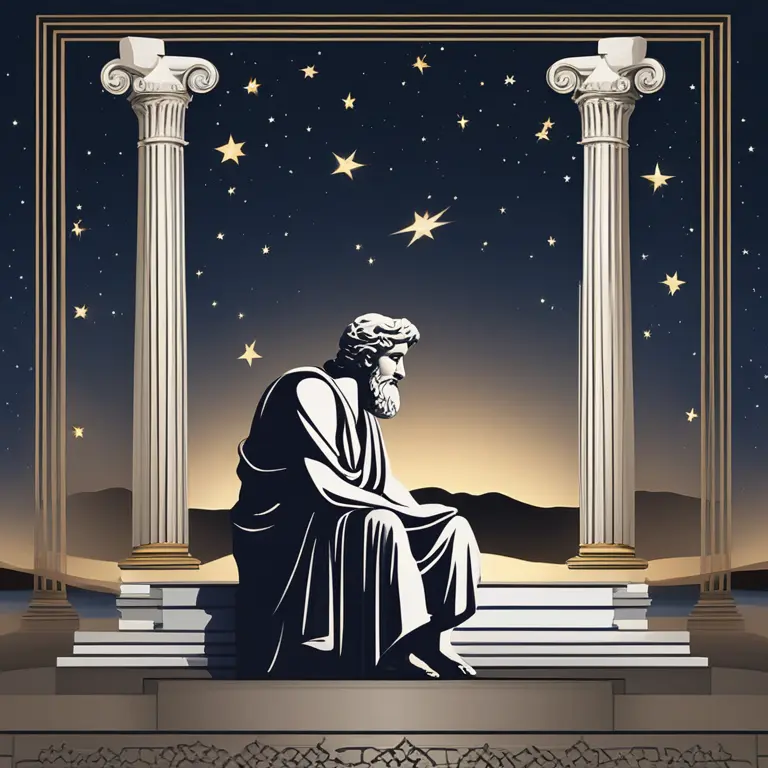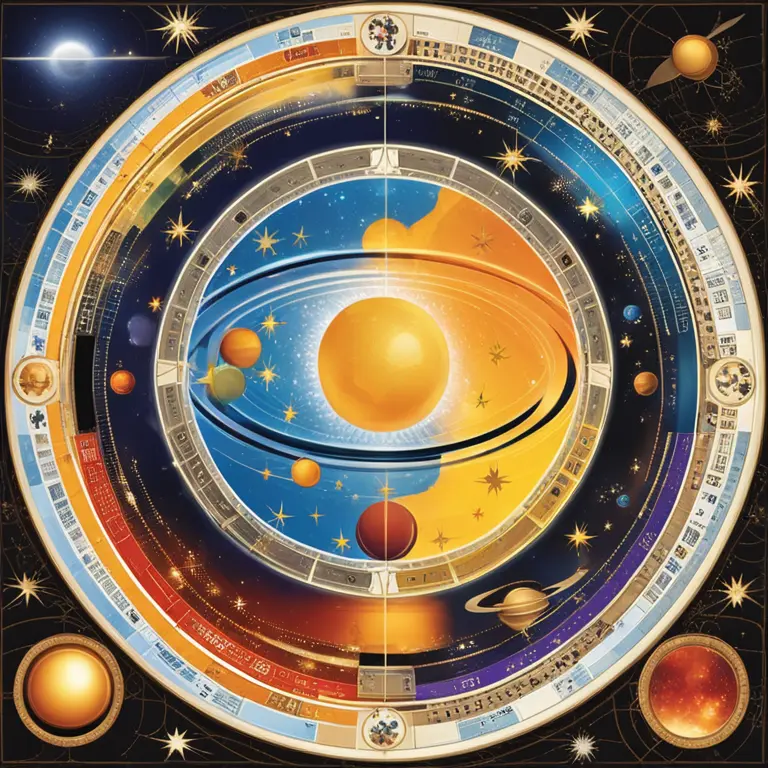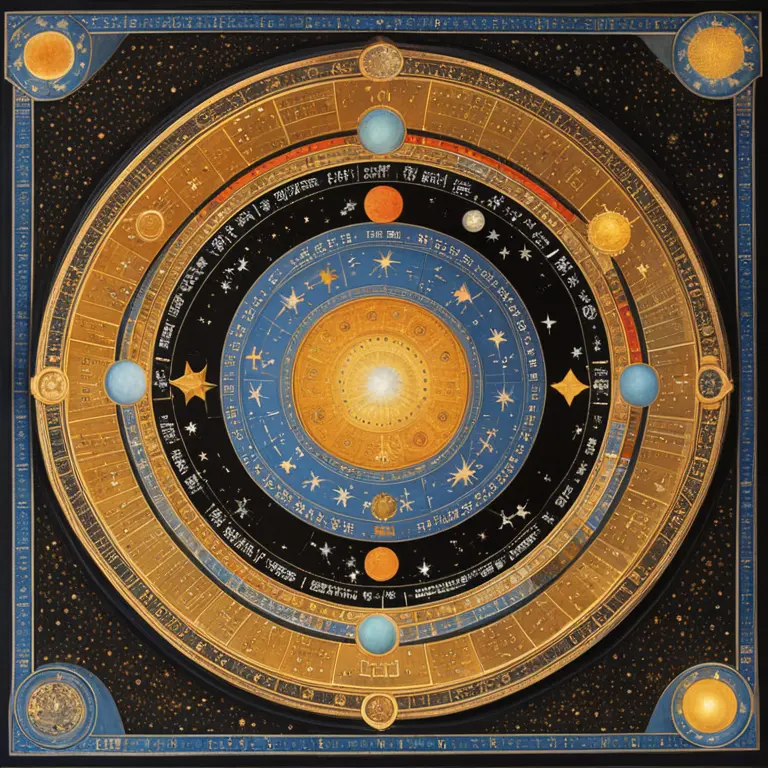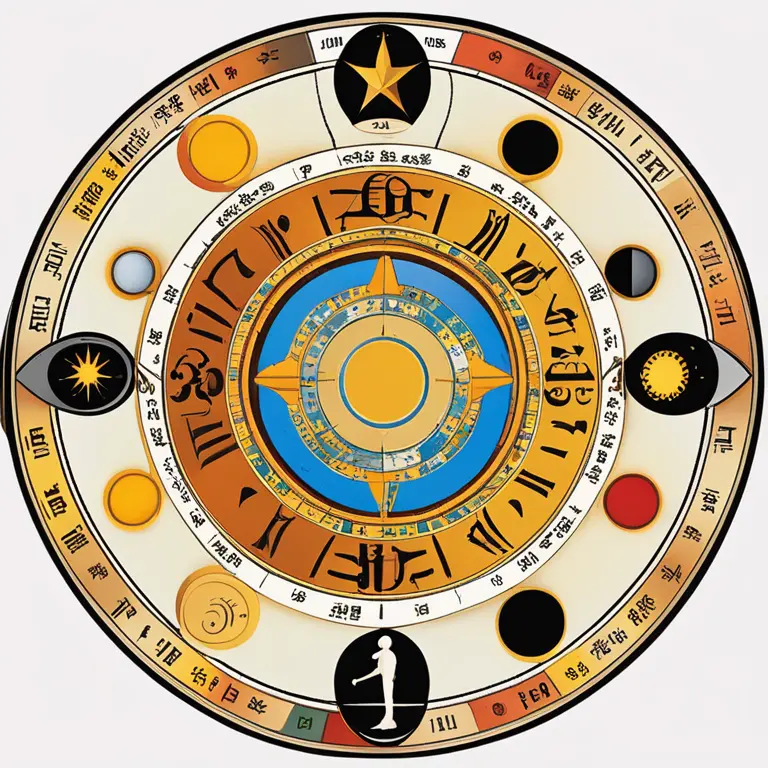
The Origins of Astrology: Etymological Journey
Delve into the roots of astrology and discover how ancient words shaped the modern understanding of the celestial art.
article by Priya Deshmukh
The Root of the Cosmic Language
The term 'astrology' evokes a sense of cosmic connection and celestial insight. But where does this word, which unlocks a universe of meaning, originate? The etymology of 'astrology' provides a fascinating window into the past. It harkens back to a time when humans first looked to the stars for guidance, long before the articulated practice we recognize today. Our linguistic journey begins with the ancient Greeks, whose language contributed significantly to the foundation of the world of astrology.

Ancient Greek Inheritance
The word 'astrology' comes from the Greek word 'astrologia,' which is a compound of two elements: 'astron' meaning 'star' and 'logia,' which denotes 'the study of.' Hence, 'astrology,' in its purest form, means 'the study of the stars.' This was the Greeks' way of describing a discipline that involved scrutinizing the stars' movements and positions to extrapolate meaning, patterns, and predictions about human life and terrestrial events.

Astrology Versus Astronomy
In modern contexts, astrology and astronomy are distinct disciplines. Still, their etymological roots are intertwined. In ancient times, there was no stark division between the two. The same Greek origins that gave us 'astrology' also provided 'astronomy' – 'astron' (star) coupled with 'nomos' (law). Both words outline a scholarly interest in celestial entities, but over the centuries, 'astronomy' has grown to represent the empirical and scientific study of celestial bodies, while 'astrology' has retained its predictive and interpretative nature, focused on influence and meaning rather than physical properties.

Evolution Over Centuries
As astrology passed through various cultures and eras, its practice and terminology evolved. The Romans, inheriting the concept from Greek tradition, used the Latinized form 'astrologia.' By the Middle Ages in Europe, the word had disseminated into common vernacular. It has been shaped by the intellectual currents of the Renaissance, the empiricism of the Enlightenment, and the spiritual and cultural revivals of modern times. Now, in 2024, astrology gains renewed relevance and interpretation, connected yet distinct from its ancient roots.

Modern Astrology's Linguistic Tapestry
In our contemporary world, astrology encompasses a wide range of practices and beliefs. Each branch of astrology—whether it's natal, mundane, or horary—owes its part to the etymological tapestry that has been woven over time. Nowadays, with the advent of the internet and social media, there's a renewed lexicon that blends classical terminology with modern colloquialisms, enriching the astrological language even further and ensuring its place in our digital age.
Cultural Resurgence and Adaptation
Astrology has not merely survived into the modern era; it has found new ground and grown roots in a cultural landscape hungry for connectivity and meaning. The etymology of astrology is as much about the evolution of a word as it is about the tenacity of a practice. It's a reminder that the allure of the stars, the quest for understanding cosmic rhythms and their impact on human destiny—no matter the epoch—retains a timeless, universal appeal.
Published: 2/5/2024
Modified: 2/5/2024
More predictions
Come back here soon to learn more about yourself and your future


The Zodiac Signs and their Influence
Delve into the intricate world of zodiac signs, where celestial alignments offer insights into personality traits, future forecasts, and life paths.


Calculate Your Sun, Moon, Rising Sign Chart
Discover the insights of your birth chart: learn about your sun, moon, and rising signs to illuminate your astrological makeup.


Leo Zodiac Sign Insights: Traits, Love, and Destiny
Delve into the spirited world of Leo: learn about their bold traits, love compatibility, and 2024 forecast in this comprehensive guide.